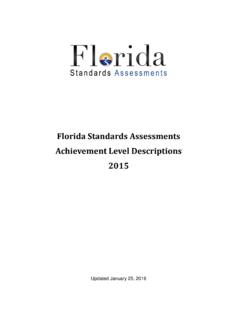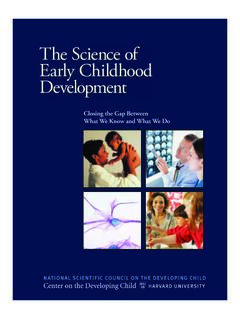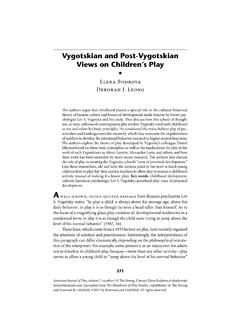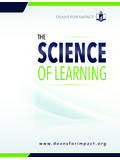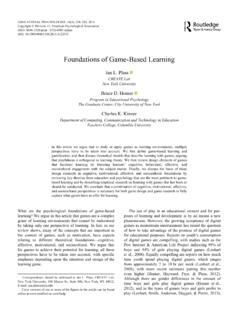Learning And Development 2015
Found 6 free book(s)Florida Standards Assessments Achievement Level ...
www.fldoe.orgJan 25, 2016 · Learning trajectories are described increasingly in the literature as theoretical underpinnings for curriculum development, instruction, and assessment of learning. The purpose of a learning trajectory is to inform researchers and educators about general developmental pathways of learning so they can set reasonable, achievable learning goals
The Science of Early Childhood Development
developingchild.harvard.edulearning, behavior, and both physical and mental health. • Creating the right conditions for early childhood development is likely to be more effective and less costly than addressing problems at a later age. Implications for Policy and Practice • Policy initiatives that promote supportive relationships and rich
The Science of Early Childhood Development
developingchild.harvard.edulearning, behavior, and both physical and mental health. • Creating the right conditions for early childhood development is likely to be more effective and less costly than addressing problems at a later age. Implications for Policy and Practice • Policy initiatives that promote supportive relationships and rich
Vygotskian and Post-Vygotskian Views on Children’s Play
files.eric.ed.govŠus, for Vygotsky, child development and learning means more than a source of practical examples for his cultural-historical theory. Instead, they were the subjec he and his studen could use to test and reŒne the ba sic principles of this theory. Early childhood for Vygotsky was the period during which the
The Science of Learning - Deans for Impact
deansforimpact.orgTHE SCIENCE OF LEARNING T he purpose of The Science of Learning is to summarize the existing research from cognitive science related to how students learn, and connect this research to its practical implications for teaching and learning. This document is intended to serve as a resource to teacher-educators,
Foundations of Game-Based Learning
files.eric.ed.govDefinitions of game-based learning mostly emphasize that it is a type of game play with defined learning outcomes (Shaffer, Halverson, Squire, & Gee, 2005). Usually it is assumed that the game is a digital game, but this is not always the case. A corollary to this definition is that the design process of games for learning involves balancing the
